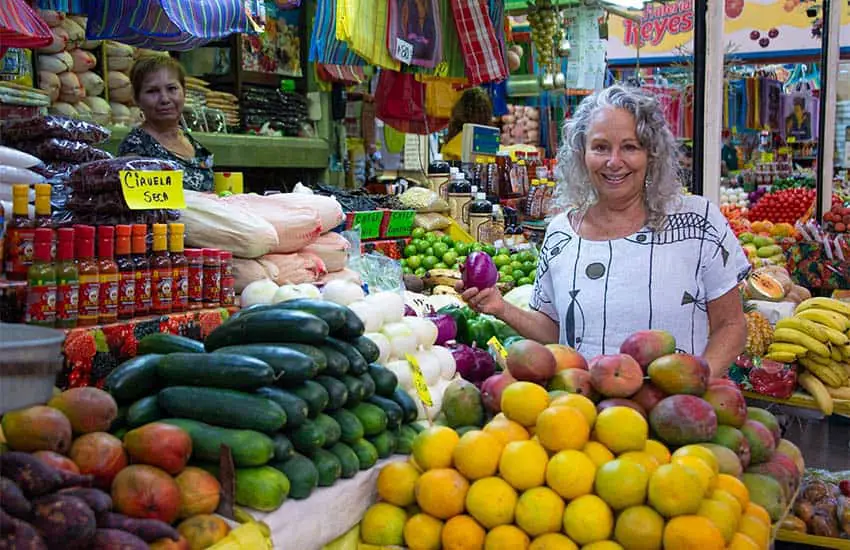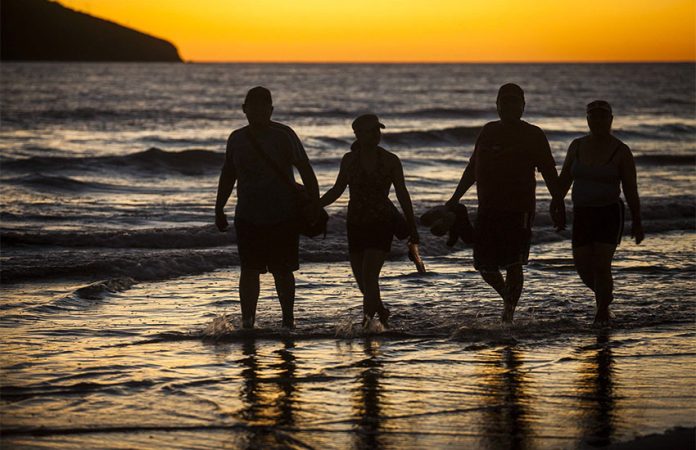Right now, Mazatlán seems poised, waiting. There’s anticipation in the air.
I’ve already had my air conditioners serviced in preparation for regular — dare I say constant — use after sitting dormant through the fall and winter and even a few months of what I guess we’d call spring. Living as close to the coast as I do, the condensers only last about four years max before they’re too rusted on the inside to work.
In tourist towns and beach destinations, we’re waiting for summer vacations too. Snowbirds often mistakenly think everything quiets down once they’ve left and that after Holy Week festivities, there’s nothing to do and no one around.
It’s quite the opposite, though, and once schools are out, families all over Mexico go on vacation, most often to the beach.
They come to Mazatlán and Puerto Vallarta, Zihuatanejo and Sayulita — thousands of people filling the beaches and streets, taco stands, souvenir shops, hotels and anything that can be called a “vacation rental.” When I lived in Santa Cruz, California, it was the same thing: summer brought an exodus of folks from the inland cities seeking a day or a week at the beach to relax, unwind and enjoy.

From a resident’s point of view, these places become a kind of zoo, an unwieldy landscape where you must make accommodations just to live your regular life.
I change my schedule and only go to the mercado and grocery stores early on weekday mornings. From Thursday to Sunday, I don’t visit friends at the other end of town; I do errands on foot as much as possible until it gets too hot to do even that.
Traffic becomes unmanageable in many places, and even what are usually “back ways” become cumbersome, with out-of-town drivers on their cell phones trying to find their rental or a restaurant or who-knows-what. Street parking ceases to exist, and the public lots jack up their prices because they can — as do taxis, especially on the weekends.
Another sign of summer: the “gourmet” and imported sections of the big-box grocery stores empty out, and I know the shelves won’t be restocked until sometime in early November. I’ve learned to check expiration dates in the summer months before I buy a box of couscous or that half-gallon of imported organic apple juice.
And the beaches! For me, this may be the most difficult thing: every inch of sand fills up with umbrellas, lounges, coolers and people, people, people. Mountains of trash are piled on the curbs — if we’re lucky. More often, it’s left on the beach to be taken out with the tide that night. If you go for a swim early in the morning — especially on a weekend — detritus from the day before bobs around you in the water, carried away from the shore by ocean currents.
Yet, there are bright spots too. It’s priceless to watch a multigenerational family lead their fully dressed grandma across the sand to step tentatively into the ocean, maybe for the first time in her life, as her grandkids and great-grandkids run and play in the water without a care in the world.
And for every thoughtless person who litters, there’s a responsible somebody quietly picking up trash.
What I see in most of these visitors is a contagious joie de vivre, and for that wake-up call I’m grateful. That, more than anything else, is what makes these hot, humid, too-busy summer months special, turning them into a time of reflection and of looking inward.
It’s a time of simple pleasures, of getting back to basics, realizing again exactly what those are and how fortunate I truly am.
Janet Blaser is the author of the best-selling book, Why We Left: An Anthology of American Women Expats, featured on CNBC and MarketWatch. She has lived in Mexico since 2006. You can find her on Facebook.
